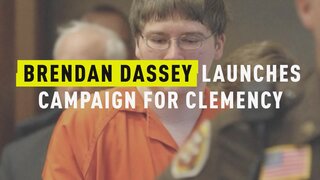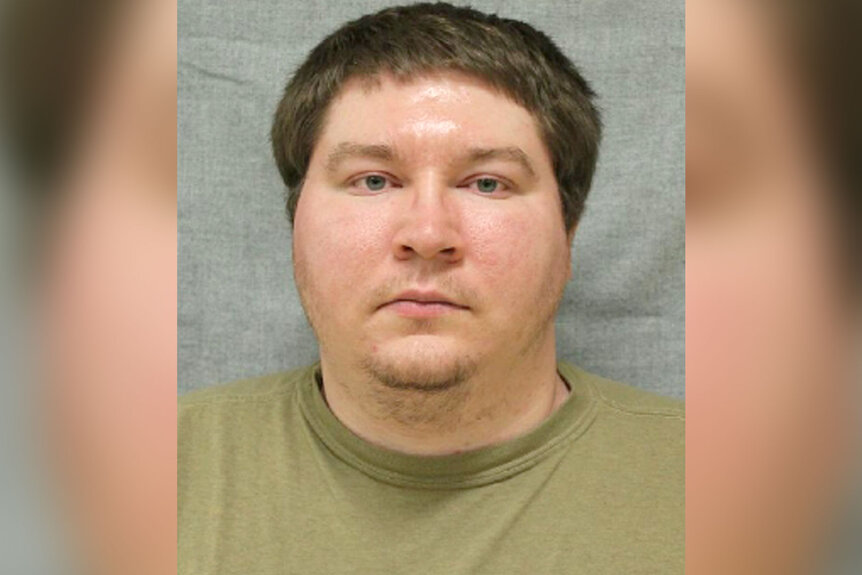Create a free profile to get unlimited access to exclusive videos, breaking news, sweepstakes, and more!
‘Bring Brendan Dassey Home’: Hundreds Of Advocates Petition Wisconsin Governor To Free The ‘Making A Murderer’ Subject
Sister Helen Prejean, author of "Dead Man Walking," is among one of the people who signed a letter to Wisconsin Gov. Tony Evers on behalf of Dassey.

Weeks after Brendan Dassey filed for clemency, nearly 250 advocates have signed an open letter urging Wisconsin’s governor to free him.
Dassey is one of two convicted killers at the heart of the Netflix series “Making a Murderer.” The 2005 murder of Teresa Halbach landed both Dassey and his uncle Steven Avery behind bars for life. The first season of "Making a Murderer," released in 2015, suggested that police may have planted evidence on Avery’s property, and that investigators took advantage of Dassey’s limited intellect in order to coax him into confessing.
Dassey, now 29, was only 16 when he confessed in 2006 to helping Avery rape and kill Halbach, a photographer, one year prior. His lawyers claim his confession, which was taped and aired in portions of the series, was coerced and shouldn’t have been used to convict him.
The new letter, written to Wisconsin Gov. Tony Evers, states, “We call upon you, Governor Evers, to use your sovereign power of executive clemency, whether in the form of a pardon or a commutation, to end the incarceration of Brendan Dassey,” according to a copy of that letter, obtained by the Wrongful Conviction podcast. “Each of us feels called upon by our conscience to sign this letter. Many of us believe Brendan Dassey to be wrongly convicted and his statements, which constitute the primary evidence against him, to be unreliable. Many of us believe that the process that led to the conviction of this sixteen-year-old special education student was indefensibly flawed, characterized by egregious defense attorney misconduct.”
It goes on to call Dassey’s life sentence “wildly inappropriate” and asks the governor to consider the opportunity to “bring Brendan Dassey home.”
The letter is signed by a variety of people including retired U.S. government officials, an Innocence Project co-founder, law professors, several exonerees, state and federal prosecutors, and Sister Helen Prejean, who wrote the book "Dead Man Walking," which was later turn into a movie starring Susan Sarandon and Sean Penn, based on her experiences with two death row inmates.
In Dassey’s petition for clemency, filed earlier this month, he is referred to as a “sixteen-year-old Mishicot High School special education student with no criminal history, an IQ of 74, and speech-language functioning in the bottom percentile” when Halbach was killed. It claims his conviction “wrongly took a confused child’s freedom.”
Dassey’s current attorney Laura Nirider previously told "CBS This Morning" that she hopes Evers, who once served on the Wisconsin Board of Education, will be compassionate toward her client.
"When Brendan Dassey was in special education, he was in 10th grade, he required an aide to sit next to him in the classroom to help him understand the teachers' spoken sentences,” Nirider said. "Then shift him into the interrogation room where he was barraged with 1,500 questions over 3 and a half hours. […] You don't have to be a lawyer to understand how an interrogation like that would overwhelm someone like Brendan Dassey."
Dassey himself wrote a handwritten letter to Evers himself in April about the request. In it, he said, "I am writing to ask for a pardon because I am innocent and want to go home. If I would get to go home, I would like to get a job involving video games.”
He is not eligible for parole for another three decades. It seemed like he had a chance to get out of prison a few years back when a federal judge overturned his conviction in 2016, the same year the Wisconsin attorney general filed a motion to release him from prison. There was a series of reversals before it was decided that he would not be released.
Dassey's lawyers appealed to the Supreme Court in 2018, but they didn’t take the case.























